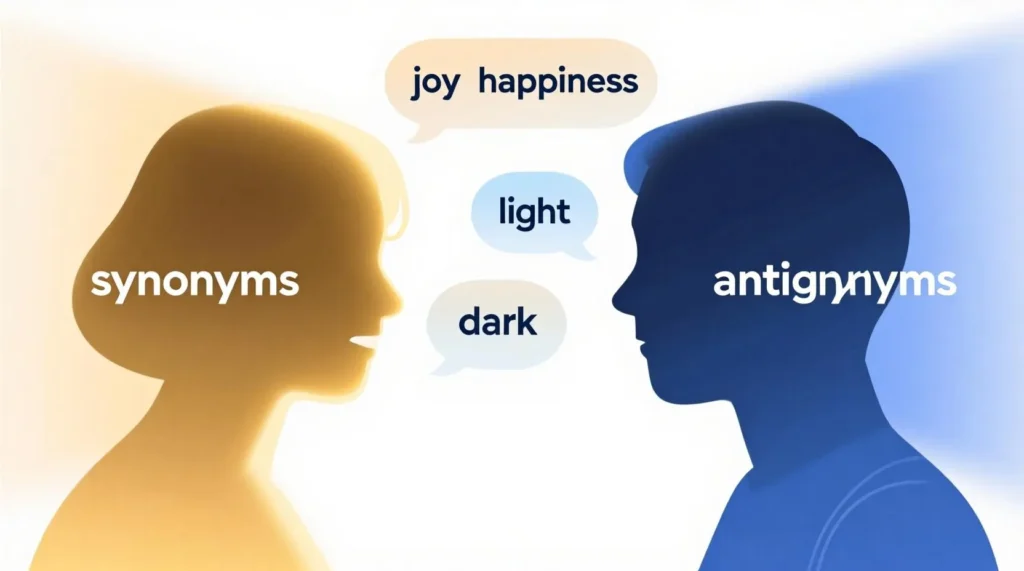Language has a way of stirring emotions. Some words do more than just convey information—they move us. One such word is poignant. If you’ve ever come across this term in literature, film reviews, or even a heartfelt conversation, you may have wondered: what is poignant meaning in English?
🔥 Rizz Line Generator 🔥
This article explores the poignant meaning definition, its origins, synonyms, antonyms, cultural significance, and practical usage in different contexts. Whether you’re looking for poignant meaning in the Bible, curious about how it translates into other languages, or simply want to know how to pronounce poignant, you’ll find everything you need right here.
Let’s dive deep into the layers of this beautifully evocative word.
Poignant Meaning in English

At its core, poignant meaning in English refers to something that deeply affects emotions, especially feelings of sadness, tenderness, or regret.
According to the Oxford English Dictionary, poignant is defined as:
“Evoking a keen sense of sadness or regret; touching and moving.”
In everyday usage, when someone describes a moment, memory, or story as poignant, they mean it left a strong emotional impression. For example:
- A soldier’s farewell to his family before deployment.
- A movie scene where a character loses someone they love.
- A nostalgic childhood memory.
These moments carry emotional weight, and that’s the essence of very poignant meaning—something deeply touching, stirring, and unforgettable.
Poignant Meaning Definition and Origins
The word poignant originates from the Latin term pungere, meaning to prick or sting. Originally, it referred to something that caused sharp physical pain. Over time, the word evolved in English to describe experiences that cause emotional pain or profound feelings instead.
Timeline of Evolution:
- 13th century: Used in Old French as poignant (sharp, piercing).
- 14th century: Adopted into Middle English, initially describing sharp tastes or literal stings.
- Modern English: Transformed into an emotional context—something that “pierces the heart.”
This etymology explains why the word still carries the connotation of sharpness—it’s as if the emotion pierces straight into your soul.
Poignant Synonyms and Antonyms

To fully understand a word, it helps to see its synonyms and antonyms.
Poignant Meaning Synonyms:
- Touching
- Moving
- Heartfelt
- Heartrending
- Bittersweet
- Emotional
- Affecting
- Tender
These words often overlap in usage, but poignant carries a deeper sharpness of feeling compared to simply “touching” or “emotional.”
Poignant Meaning Antonym:
The opposite of poignant would be something lacking emotional depth. Some poignant meaning antonyms include:
- Unemotional
- Indifferent
- Insensitive
- Detached
- Cold
Table of Synonyms and Antonyms
| Synonyms (Similar) | Antonyms (Opposite) |
|---|---|
| Touching | Indifferent |
| Moving | Unemotional |
| Heartfelt | Cold |
| Bittersweet | Detached |
| Heartrending | Insensitive |
Understanding both sides helps you use the word with precision, especially in writing.
Poignant Meaning in the Bible
In biblical context, poignant meaning in the Bible often relates to stories, parables, or verses that stir deep emotional responses. For example:
- The sacrifice of Isaac in Genesis is considered a poignant reminder meaning of faith and obedience.
- Jesus weeping over Lazarus is described as one of the most poignantly beautiful meanings of compassion and divine love.
Biblical stories often use poignant themes to show how human experiences connect with spiritual truths. The word captures the deep sorrow, joy, and redemption woven into these scriptures.
Poignant Meaning in Literature
One of the best ways to understand poignant meaning definition is to look at literature. Writers often use poignant imagery and storytelling to leave a lasting emotional impact.
Example: The Great Gatsby
The ending of F. Scott Fitzgerald’s novel is considered one of the most poignant meanings in The Great Gatsby, where Gatsby’s unfulfilled dreams and tragic death remind readers of the fragility of hope.
This is why critics often describe the novel as poignantly beautiful—it’s not just sad, it’s layered with yearning and bittersweet reflection.
How to Pronounce Poignant
A common question is: how to pronounce poignant?
In English pronunciation, the word is pronounced as:
/ˈpɔɪnjənt/ → “POY-nyuhnt”
Many people mistakenly pronounce the “g,” but the correct pronunciation skips over it.
This pronunciation nuance is often tested in public speaking, presentations, and even when learning English as a second language.
Poignant in Different Languages
The richness of poignant meaning extends into other languages, where translations carry similar emotional weight.
Poignant Meaning in Other Languages:
- Poignant meaning in Urdu: دردناک (dardnaak) → painful, heartrending
- Poignant meaning in Hindi: मार्मिक (maarmik) → touching, emotional
- Poignant meaning in Tamil: நெகிழ்வூட்டும் (neḵiḻvūṭṭum) → moving, stirring
- Poignant meaning in Marathi: हृदयस्पर्शी (hr̥dayasparśī) → heart-touching
- Poignant meaning in Gujarati: કરુણ (karuṇ) → pitiful, touching
- Poignant meaning in Spanish: conmovedor → moving, stirring
- Poignant meaning in Malayalam: ഹൃദയസ്പർശി (hr̥dayasparśi) → heart-touching
Each translation reinforces the emotional depth the word conveys.
Poignant in a Sentence
To solidify understanding, here are several examples of poignant in a sentence:
- The movie’s ending was so poignant that the entire audience was moved to tears.
- He gave a poignant reminder of the sacrifices made by frontline workers.
- Her speech at the memorial was poignantly beautiful, leaving everyone in silence.
- The old photograph brought back poignant memories of childhood summers.
Notice how the word often pairs with experiences, speeches, or memories that cut deeply into the heart.
Cultural and Modern Uses of Poignant
Today, the word poignant is widely used in reviews, media, and everyday conversations.
- Film & TV: Critics describe movies as poignant when they evoke deep feelings, like “Schindler’s List” or “The Pursuit of Happyness.”
- Music: Lyrics about loss, love, or hope often get labeled as poignant.
- Social Media: Posts about personal struggles or heartfelt tributes frequently use the phrase “poignant reminder” to highlight emotional depth.
In modern culture, poignant synonym terms like touching or heartfelt are common, but poignant still holds stronger literary and emotional resonance.
Poignant Reminder Meaning
One popular phrase is “poignant reminder.”
This means something that strongly recalls an emotional or important truth. Examples:
- A war memorial serves as a poignant reminder of sacrifice.
- Old love letters are a poignant reminder of relationships gone by.
- Natural disasters can be a poignant reminder of life’s fragility.
This phrase often appears in journalism, eulogies, and commemorations.
Poignantly Beautiful Meaning
Sometimes you’ll hear the phrase ˈpoignantly beautiful meaning. This refers to something that’s not only beautiful but also tinged with sadness or bittersweet emotion.
For example:
- A sunset marking the end of summer.
- A final farewell at graduation.
- An if possible couple holding hands after decades together.
These moments are beautiful, but they also carry an undercurrent of fragility and sorrow, which makes them poignantly beautiful.
Quick Reference: Poignant Meaning Oxford English Dictionary
Here’s a snapshot reference from the Oxford English Dictionary (OED):
| Aspect | Definition |
|---|---|
| Word | Poignant |
| Pronunciation | /ˈpɔɪnjənt/ |
| Part of Speech | Adjective |
| Meaning | Evoking a keen sense of sadness or regret |
| Origin | Latin pungere → to prick |
| Synonyms | Touching, moving, heartfelt |
| Antonyms | Indifferent, unemotional |
Final Thoughts on Poignant Meaning
The word poignant captures the essence of human emotion—moments that pierce, linger, and shape us. It’s more than just a synonym for “sad” or “moving.” It’s about experiences that are deeply felt, beautifully bittersweet, and emotionally unforgettable.
Whether you encounter it in literature, the Bible, translations, or daily conversation, the term remains a powerful way to express the impact of emotion.
As you move forward, try incorporating this word into your vocabulary. Use it to describe not just sadness, but those rich, layered emotions that make life profoundly human.





